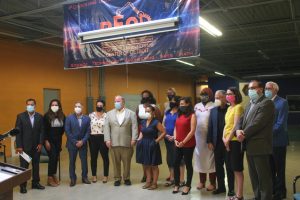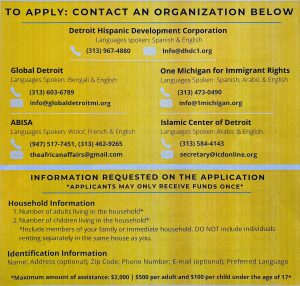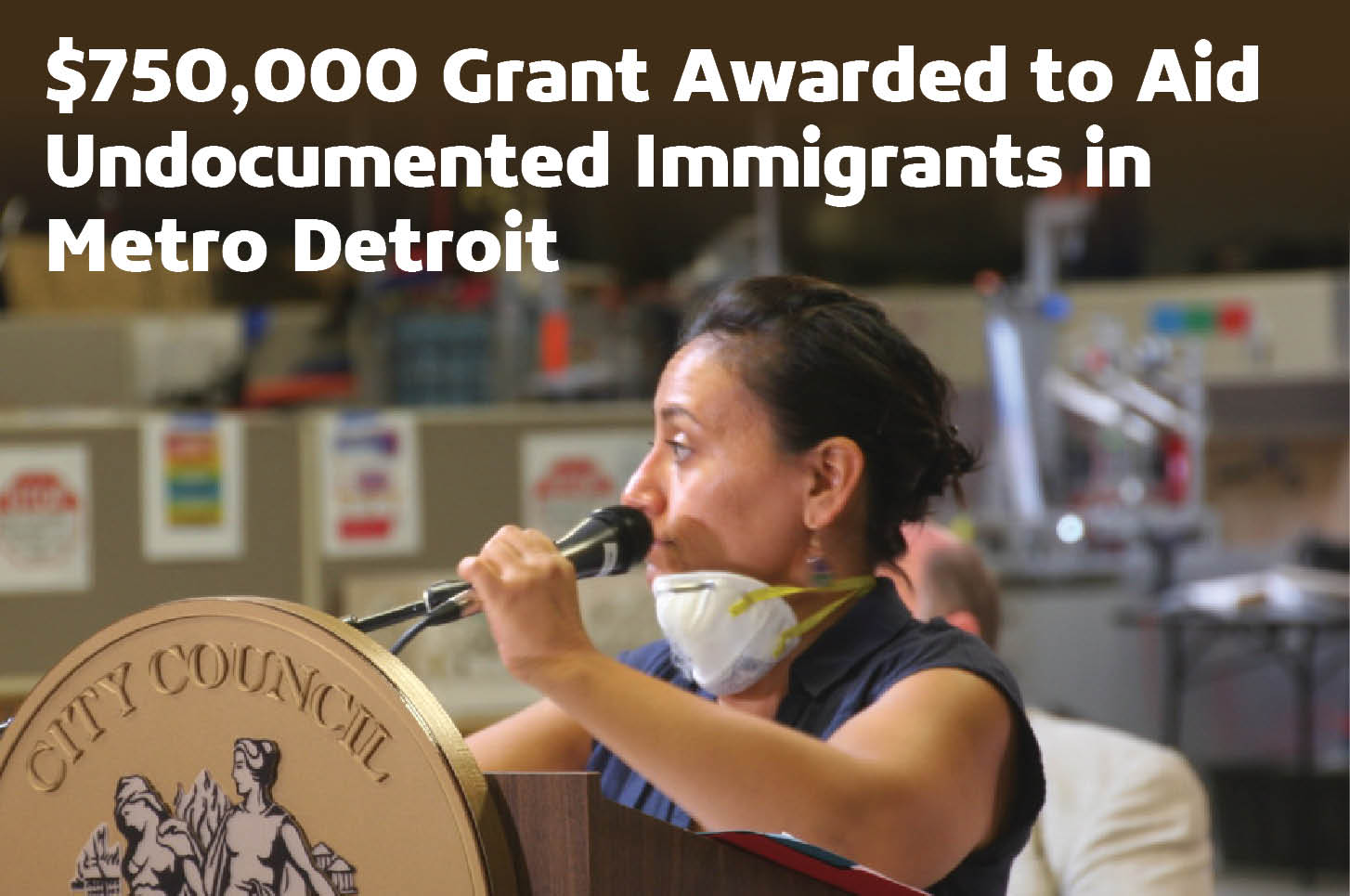By Simon Albaugh
Detroit, Mich. – The Open Society Foundation has awarded organizations operating in the City of Detroit a massive grant of $750,000 in order to assist undocumented immigrants who were not able to obtain any aid through the federal government. The organizations are in partnership with one another in order to award the funding to those with the most pressing need in their respective community.
The grant funds were awarded to the Detroit Hispanic Development Corporation, a non-profit organization dedicated to establishing greater opportunities for youth and families. Under the leadership of the DHDC, other organizations operating around Detroit will be tasked with awarding the funds.
The other organizations are Islamic Center of Detroit, Global Detroit, African Bureau of Immigration and Social Affairs (ABISA) and One Michigan for Immigrant Rights.
The total fund is known as the Detroit COVID-19 UndocuFund, an initiative that was led by Detroit City Council Member Raquel Canstañeda-Lopez. With the help of the City of Detroit’s Immigration Taskforce, the Open Society Foundation and the Office of Immigration Affairs, Council Member Canstañeda-Lopez was able to establish a confidential funding system that would allow families to prove their immigration status without any documented encounter.
Council Member Canstañeda-Lopez explained in a press conference that the confidentiality was a beneficial effect of a lot of things, such as private funding being used to establish UndocuFund and the system by which they will ensure that the funds are distributed.
People who apply for the funding will not be required to submit any documentation of their immigration status for recording purposes, Canstañeda-Lopez says. “And once the funding is completely spent, all documentation will be destroyed,” Canstañeda-Lopez said.
Mayor Mike Duggan, who was present at the Press Conference, talked about the importance of going outside of the city’s budget in order to pursue aid for undocumented families.

Council member Canstañeda-Lopez, Mayor Mike Duggan and many other leaders in Detroit’s public and nonprofit groups met at the Detroit Hispanic Development Corporation headquarters to announce the establishment of the Detroit COVID-19 UndocuFund.
“As the council member said, those who are undocumented are just as much at risk for the disease and probably suffered economically even more,” Mayor Duggan said. “And yet they didn’t have the ability to fight back on that pain and hardship with stimulus checks and unemployment checks because of their status. And so you have a difficult situation, how do you help folks who very much have the need and not cause them greater problems?”
The solution to the issue of government transparency was for city government officials to act as facilitators for private funding from the Open Society Initiative to be given directly to the organization who will distribute the funding. So no list will be kept for Detroit Government’s transparency requirements, and Immigration Officials from the federal government will not have access to the names of any undocumented families or individuals.
“Only the people who work in those organizations will have the information of the people who are applying to which you won’t have anywhere else,” said Angie Rayez, Executive Director of Detroit Hispanic Development Corporation. “Nobody in the city government will have it so it will be very safe and confidential for people. And folks will be able to reach out to any one of the five organizations that I mentioned to get help.”
In order to apply, people who have an undocumented immigration status can contact one of five organizations that can provide the services in their community or language. For the Arabic Language, the Islamic Center of Detroit and One Michigan for Immigrant Rights are both processing applications. For Bengali, people can reach out to Global Detroit.
The Organization will ask for the number of adults and children in your household. In order to know that the funds are being distributed to each family who needs it, the organization will ask for the applicant’s name, zip code, phone number. Providing an address and email are optional. A document must be shown – but not recorded – in order to confirm the person’s identity.

A list of organizations accepting applications for funding through the Detroit COVID-19 UndocuFund.
The COVID-19 Pandemic has created a challenging set of choices for many families. But while living without unemployment benefits or the stimulus check from the CARES ACT, the country’s millions of undocumented immigrants have very little to keep themselves afloat.
“Many Arab American and Muslim undocumented families are greatly suffering due to the COVID-19 Pandemic and cannot get any help from the federal and local government like their fellow Americans,” said Sufian Nabhan, Executive Director of the Islamic Center of Detroit. “This fund can help them in paying rent, utility bills and daily life expenses for their children. The need for the undocumented families are huge, and anything can help.”
“We know that in the city of Detroit, about 6.1 of our percent are immigrants,” said Council member Canstañeda-Lopez. “And we estimate that 6.1%, roughly 8,000 to 20,000, may be mixed status or undocumented themselves. Given that, we knew that we had to do something to step up to make sure that these families were being supported. These are our residents, our neighbors, our family members, and they are taxpaying Americans, regardless of their immigration status. they pay into our society, and they deserve to be supported.”












